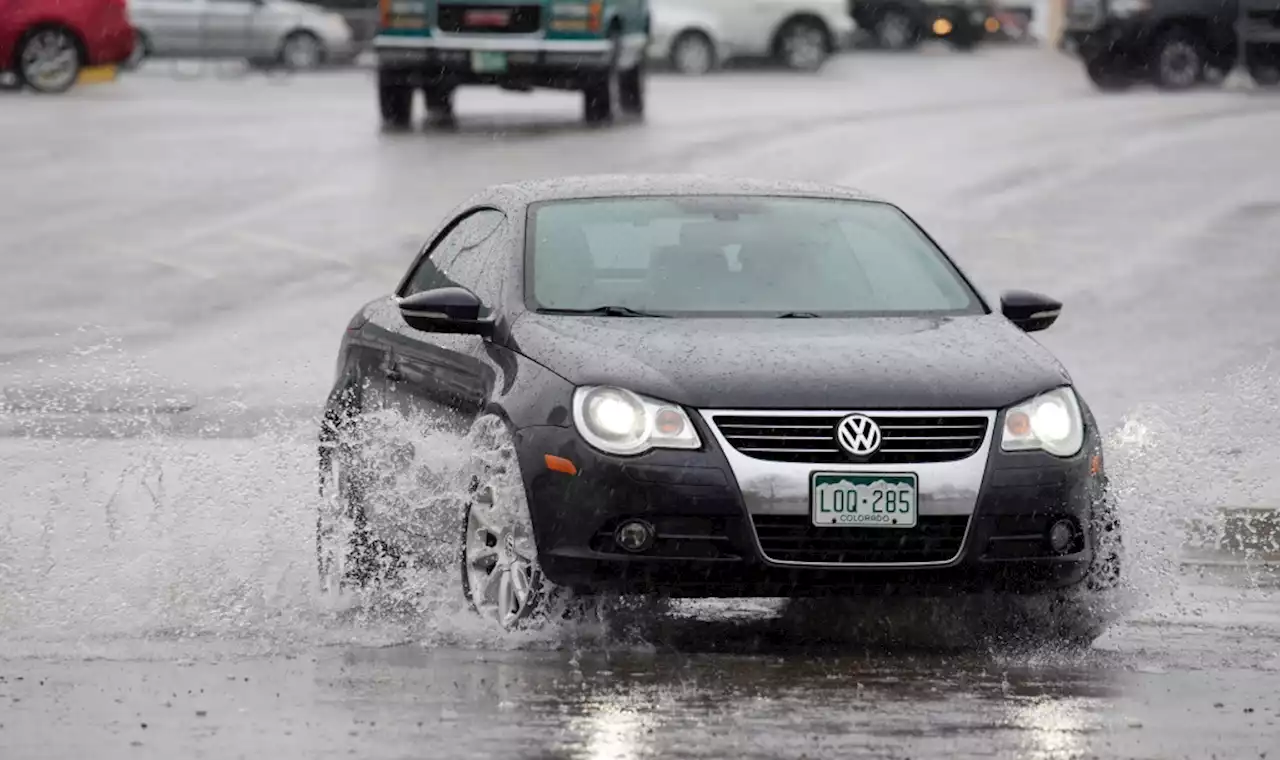For Star subscribers: Lakes Powell and Mead, the depleted symbols of the Colorado River's water crisis, are unlikely to ever fill again, several water experts say.
Tony Davis Lakes Powell and Mead, the depleted symbols of the Colorado River's water crisis, are unlikely to ever fill again, several water experts say.
People are also reading… That's highly unlikely or impossible, with the river carrying about 20% less water, on average, each year than it did during the 20th century, Udall and Kuhn said. Miller noted that Jennifer Pitt, a longtime Colorado River activist for the National Audubon Society, has recently concluded that"if we had normal snowpack conditions for three straight years and also zero water use, we'd refill the majority of the Upper Colorado Basin reservoirs." Miller based his six- to eight-year estimate on Pitt's logic, but"knowing we are not ever going to not use water.
Cutting water useThe reservoirs are in bad enough shape that the bureau is studying two alternatives for curbing consumption of river water by the Lower Basin states of Arizona, California and Nevada by 2 million to 4 million acre-feet a year. Such a cut, starting next year, would be equivalent to up to nearly 30% of current levels of use.
The river carried 21.6, 16.6 and 15.8 million acre-feet a year, respectively, from 1997 through 1999. All three flows were well above the Colorado's average, annual natural flow of 15 million acre-feet during the 1900s — an average that has fallen sharply since then. Since 2000, the Colorado has never had even two consecutive years of above-normal flows, federal records show.
"More importantly, I cannot envision any set of circumstances ever where once these reservoirs went to half full that anyone would want to endure the pain of 4 million acre-feet a year cuts," Udall said."Historically, this whole system has been designed to push out as much water as possible every year."
The mid-'80s were part of an unusually wet era on the river that stretched from the late 1970s to the late 1990s. Since then, the Colorado River Basin, along with the entire Southwest, has suffered through its worst drought in 1,200 years. In fact, 2018 had the lowest precipitation across the river's Upper Basin of any year since 1895, when records started being kept. The 23-year period ending in 2022 also had the lowest 23-year average precipitation on record, he said.
México Últimas Noticias, México Titulares
Similar News:También puedes leer noticias similares a ésta que hemos recopilado de otras fuentes de noticias.
 Colorado weather: Aurora firefighters rescue man stranded in truck in high waterTHE LATEST: Aurora Fire's swift water rescue team saved a man who was stranded in his truck amid rising waters near the intersection of 56th and Hudson. Rescuers walked in the waters for about a half mile to reach the truck cowx
Colorado weather: Aurora firefighters rescue man stranded in truck in high waterTHE LATEST: Aurora Fire's swift water rescue team saved a man who was stranded in his truck amid rising waters near the intersection of 56th and Hudson. Rescuers walked in the waters for about a half mile to reach the truck cowx
Leer más »
 Rainfall since Wednesday equates to 16% of Denver’s annual averageWeather update: Rainfall since Wednesday equates to 16% of Denver’s annual average:
Rainfall since Wednesday equates to 16% of Denver’s annual averageWeather update: Rainfall since Wednesday equates to 16% of Denver’s annual average:
Leer más »
 Editorial: Colorado TABOR refunds will be fairer if voters pass HH in NovemberWe love the not-so-subtle undermining of Douglas Bruce’s original intent with TABOR to lock Colorado into a regressive tax system.
Editorial: Colorado TABOR refunds will be fairer if voters pass HH in NovemberWe love the not-so-subtle undermining of Douglas Bruce’s original intent with TABOR to lock Colorado into a regressive tax system.
Leer más »
 Colorado’s “reverse auction” for state employee drug plan estimated to save $27.5 millionTo conduct a reverse auction, the state created a general base plan and let the competing companies submit detailed proposals. An algorithm, run by a third party, then determined which would be cheapest
Colorado’s “reverse auction” for state employee drug plan estimated to save $27.5 millionTo conduct a reverse auction, the state created a general base plan and let the competing companies submit detailed proposals. An algorithm, run by a third party, then determined which would be cheapest
Leer más »
 Colorado Rapids suspend Max Alves after match-fixing allegations; MLS investigatingA Colorado Rapids player has been removed from all team activities after allegations of unlawful sports gambling, the team and MLS announced Wednesday.
Colorado Rapids suspend Max Alves after match-fixing allegations; MLS investigatingA Colorado Rapids player has been removed from all team activities after allegations of unlawful sports gambling, the team and MLS announced Wednesday.
Leer más »
 Opinion: Colorado rancher is tired of paying a corrupt federal fee for meat-packing lobbyistsAs a rancher paying the beef checkoff since its beginning, I’m angry it continues to be invested against my interests. It’s like being forced to buy your own hanging rope or digging you…
Opinion: Colorado rancher is tired of paying a corrupt federal fee for meat-packing lobbyistsAs a rancher paying the beef checkoff since its beginning, I’m angry it continues to be invested against my interests. It’s like being forced to buy your own hanging rope or digging you…
Leer más »
